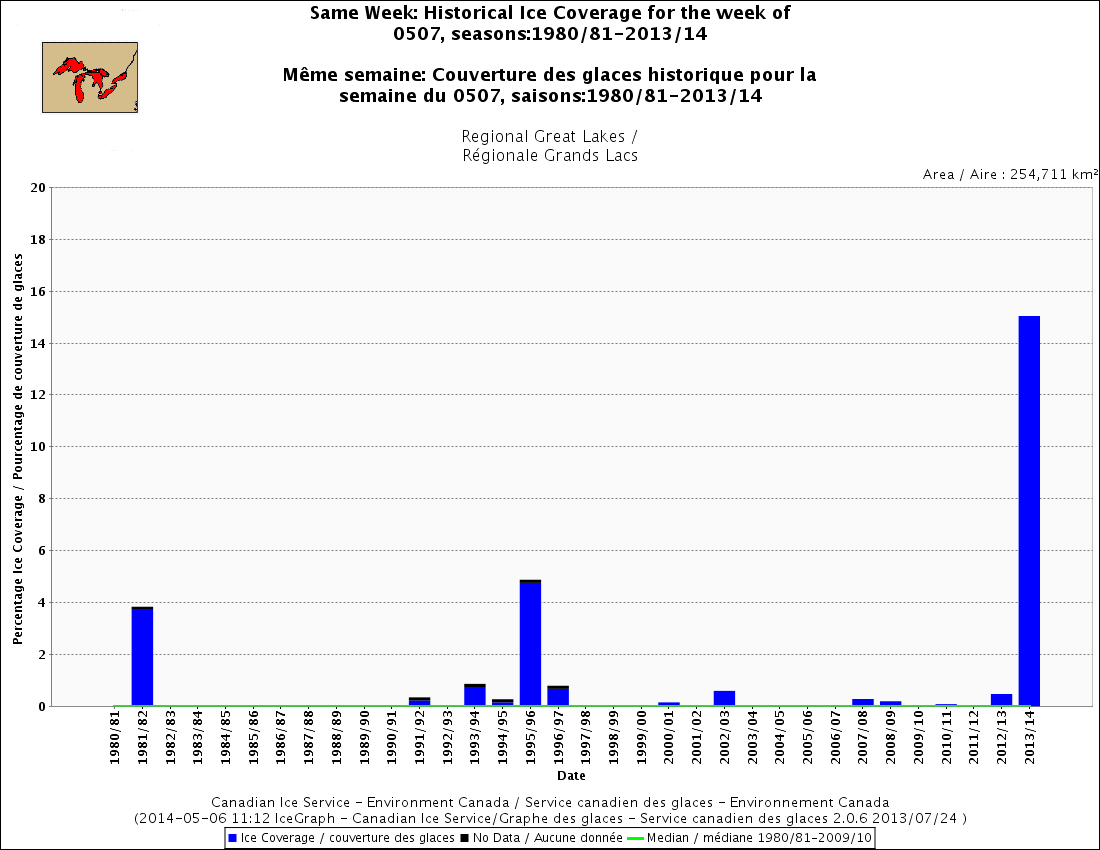The Great Lakes are normally ice-free in May. This year they are still 15 % ice covered, which is 300% of the previous record.
20140505180000_CVCHDCTGL_0007650713.gif (1100×850)
NOAA says that many years were colder in the upper midwest, because they tamper with data and have completely lost touch with reality.



It was originally reported that Chicago had the coldest Dec-March on record. After NOAA “corrected” the temperatures, it fell to fourth place.
Makes for funny weather. Snow when it is 45.
We can tell Reggie the missing Arctic ice has been found, it is OK and authorities plan to reunite it with its family as soon as possible.
Reggie can put away his blowtorch, his work is done.
And if it all melts this summer, that’s proof of global warming.
Let Zeke and Mosher play with the data for a bit; 2014 will end up as the lowest on record after they put it through the blender. Nick Stokes says having more ice on the Great Lakes is not indicative of a colder Winter and Spring.
No one’s talking about it yet, but…
The persistent cold weather that froze over the Great Lakes, the central U.S. and the St. Lawrence region also created thicker ice over the Hudson Bay. The ice area loss rate for the Hudson is going to be much slower this year. Expect a cool spring for the entire region of eastern Canada and the NE U.S.
And watch for the effect of those colder temperatures on the regions “downstream” of the weather patterns.
May 13
http://ice-glaces.ec.gc.ca/prods/CVCHDCTGL/20140512180000_CVCHDCTGL_0007661849.pdf